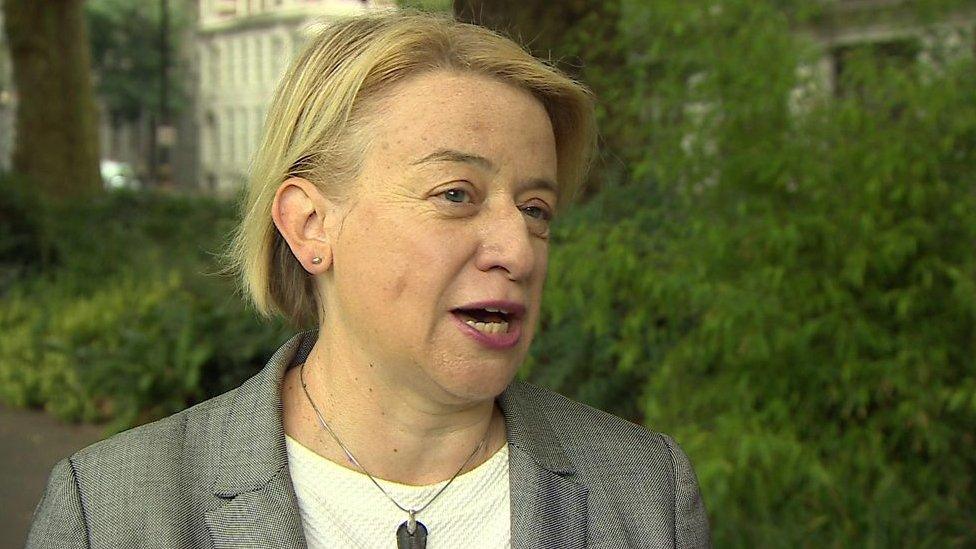Greens' Caroline Lucas proposes Labour election pact
- Published
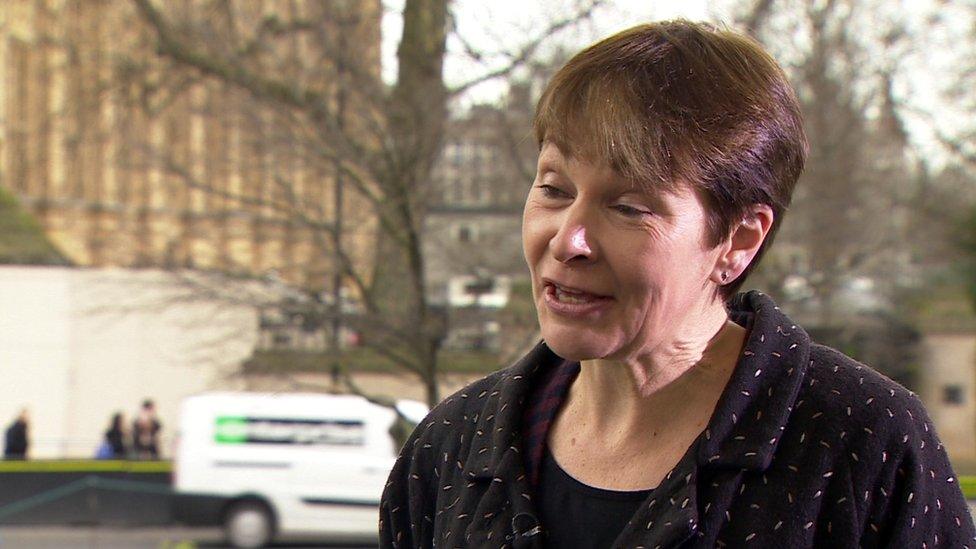
Green Party MP Caroline Lucas has raised the prospect of an electoral pact with other parties to prevent them "fighting each other".
She indicated she would be prepared to consider deals with Labour that could involve candidates standing aside in some constituencies.
Counting of votes is due to start today in the Green Party leadership election, in which Ms Lucas is a candidate.
Labour leader Jeremy Corbyn has previously rejected an electoral pact.
In a sign of the determination by the Greens' only MP to boost the party's presence in Parliament, Ms Lucas told the BBC she wants "all the options on the table" when it comes to the possibility of talking to other parties before the next general election.
She said: "It doesn't make sense for parties of the left to be constantly fighting each other and meanwhile the Conservatives come through and we've seen that time after time in the 2015 general election.
"I think what we are looking at is those marginal constituencies where some kind of agreement between progressive parties might be able to make a difference."
Asked whether this meant she was prepared to see a Green candidate drop out of a constituency race so long as Labour did the same elsewhere, the MP for Brighton Pavilion said: "Personally I would".
Vote 'split'
Such a pact could be designed to prevent the "left" vote being split between Labour and the Greens in some constituencies, allowing Ms Lucas' party to target certain seats while offering Labour a clear run elsewhere without Green opposition.
She stressed it was ultimately for the party to decide on what was her personal view on the issue.
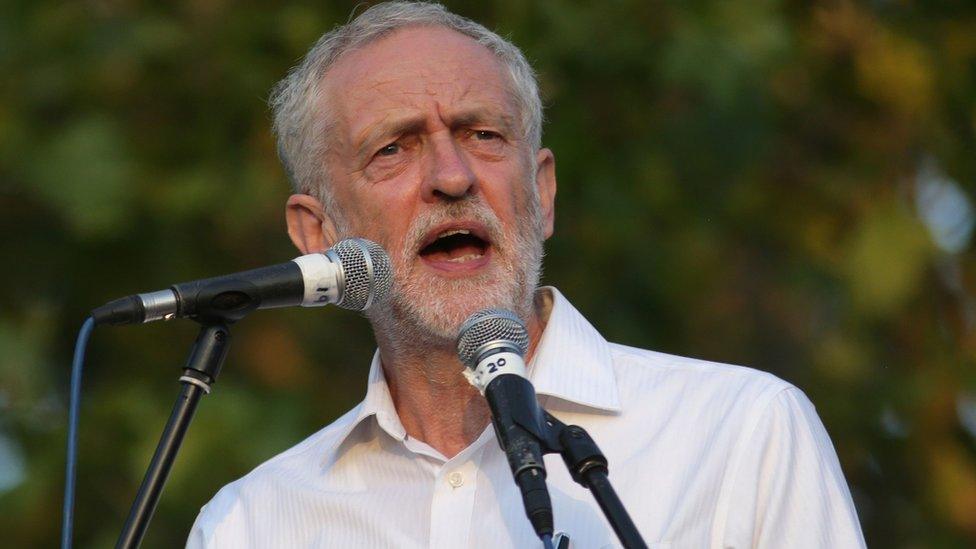
Labour leader Jeremy Corbyn has previously ruled out an electoral pact with the Greens
But the call is unlikely to be welcomed by senior Labour figures and some in Ms Lucas' party have treated the idea with scepticism, although it has been supported by outgoing leader Natalie Bennett.
Jeremy Corbyn previously ruled out the idea of a deal with Ms Lucas, external to stop the Conservatives winning in Brighton, saying that cooperation with other parties did not "translate" into electoral pacts.
The debate over an electoral alliance has featured on several occasions during the Green party's leadership race, in which seven candidates are standing.
The ballot of the Greens' 53,000 members closed on Thursday night, with the result due to be announced at the party's conference in Birmingham on Friday, 2 September.
'Progressive alliance'
David Williams, another leadership contender, said that while he supported of the idea of talking to other parties he believed Labour would not co-operate.
He told the BBC: "We can make agreements I think with the Liberal Democrats, with Plaid Cymru, with the SNP but the advantages in terms of ousting the Tories as a result of that are quite marginal.
"They could be quite substantial if Labour would come along and join the alliance but I don't think they will."
He spoke as Green party activists campaigned at the Elder Stubbs allotment festival in Oxford in aid of the mental health charity Restore.
Another Oxfordshire Green Party activist Hazel Dawe said a "progressive" alliance would be "a wonderful thing" but believed it was unachievable.
She said: "I think there are a lot of obstacles to achieving it, not the least of which is that the Labour party is not committed to proportional representation."
Ms Lucas said the "prize" for her party is that any alliance would have an agreement over electoral reform "at its heart".
The party favours a system of proportional representation which would see the number of seats won at Westminster more closely reflect its national share of the vote.
At the 2015 general election the the Green Party won nearly 1.2m votes but took only one seat in Westminster.
- Published2 September 2016
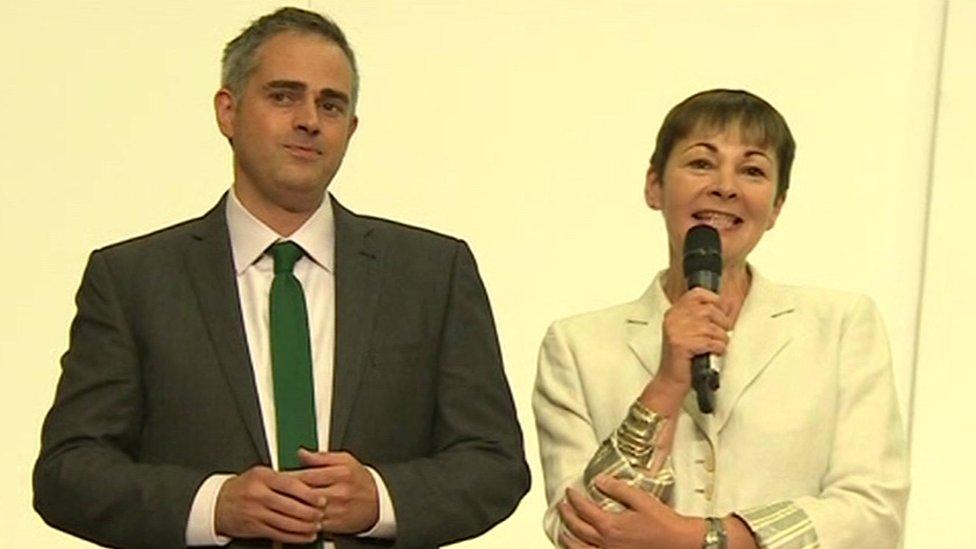
- Published25 July 2016
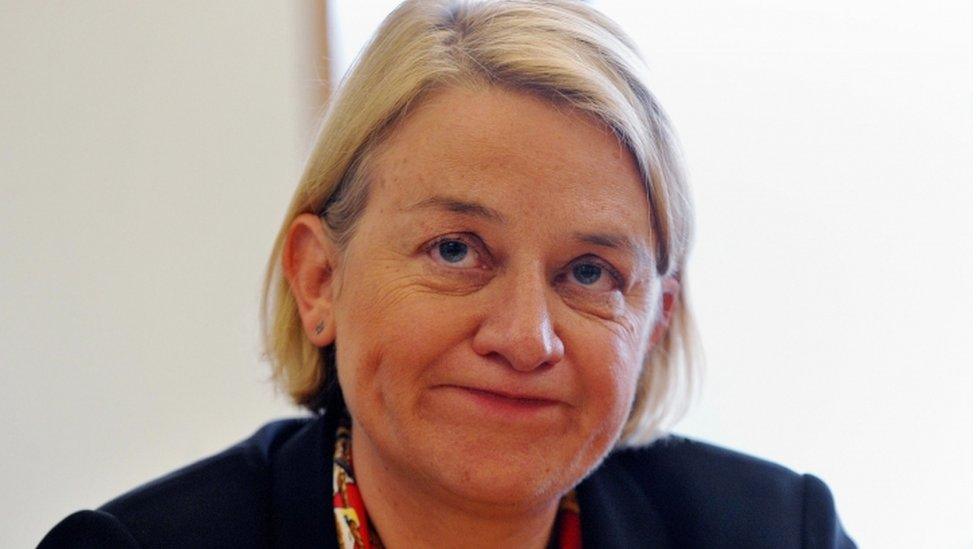
- Published16 May 2016
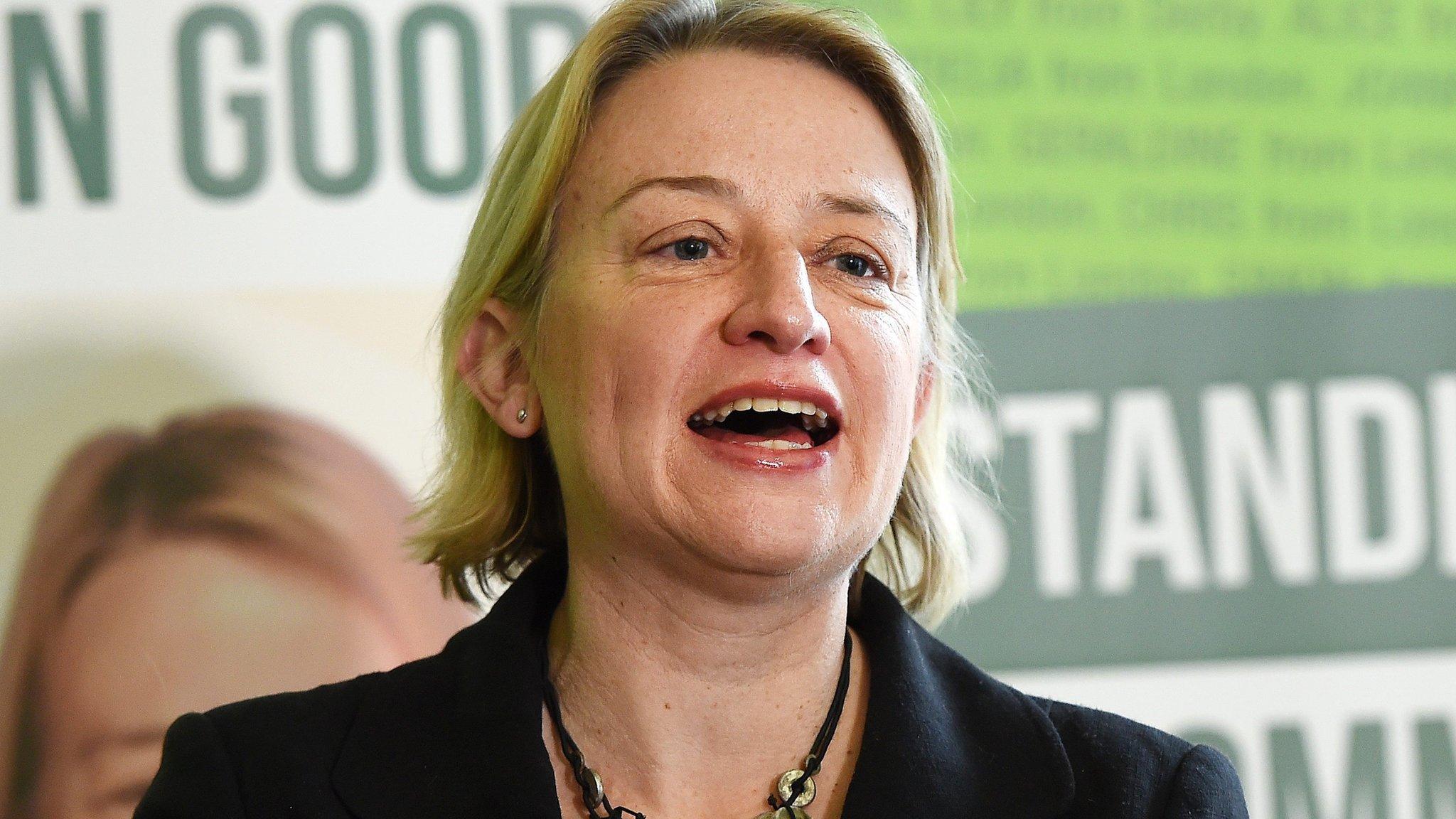
- Published25 August 2016
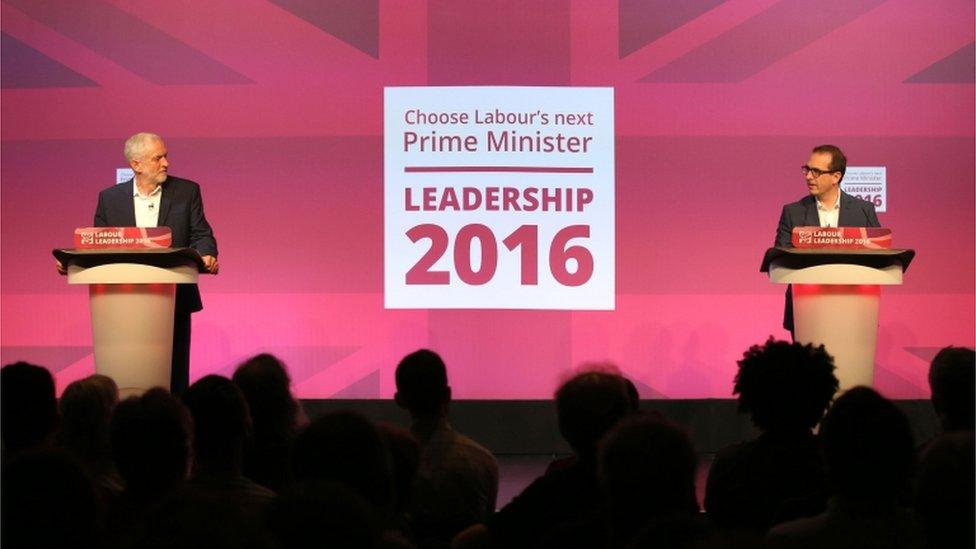
- Published24 August 2016
